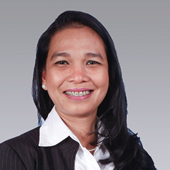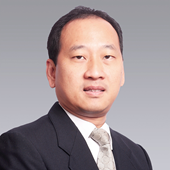Office
The Work from Home (WFH) strategy has resulted in more flexibility in working habits, both in terms of location and working hours. This has led to efficiency measures, with companies adjusting working arrangements for employees and maximizing the usage of space. Landlords need to anticipate such efficiency trends leading to fewer space inquiries, especially from new businesses beginning to explore opportunities in Surabaya, or from existing tenants requiring agile spaces as alternatives to paying higher occupancy costs and longer lease periods for larger spaces.
The current circumstances are more favourable to tenants, and landlords should continue to adopt flexibility in terms of rental negotiations and lease-term periods to attract more tenants.
Apartment
The market remains stagnant this quarter, with no new projects introduced or completed. This quarter’s sales performance was the weakest with only less than a hundred units sold. Even so, the asking price has increased but with limitation, as only some projects implemented a hike while the others retained their price.
However, we believe this stagnation will not remain long as new products will be launched next semester. Also, there is an indication of a rising interest and inquiries for strata-title apartments. Therefore, developers can use this opportunity to boost their sales.
Retail
The shopping centre market in Surabaya signaled a gradual return, as tenants have begun re-opening their stores and visitors become more comfortable coming to shop. The vibe inside malls has improved with regular events and exhibitions.
Owners and management continue to change in order to determine the best format in maintaining positive performance in their malls. During the pandemic, competition amongst shopping centres has forced management to find the best way to keep their shopping centre a leading shopping destination. Mall managements need to pay attention to their target customer demography and meticulously formulate a suitable composition of their tenants.
Hotel
The hotel industry has started seeing improving MICE activities, which are continually held in hotels. At the same time, we also notice that business trips have started picking up, further propelled by a more relaxed policy that has opened the gates for international arrivals at Juanda Airport. Today, hotel performance both in occupancy and room rate has exceeded its level in 2020-2021, albeit still lower than that before the pandemic. All in all, performance will likely trend upward, provided the economy continues to grow and the pandemic curbed.
With all the favourable signs, however, we think the overall condition is still unstable. Hoteliers should anticipate a flawed condition, particularly in managing operations that deal with rooms, outlets, manning, etc., which could potentially incur additional burden for the hotel. Most importantly, the hotel industry should remain flexible in adjusting to dynamics and trends.
Industrial Estate
An improving economic outlook is strengthening sentiment among foreign investors. The reopening of the country will help boost the number of business travellers, particularly those inspecting construction sites. Being able to make physical site inspections is considered an important factor in facilitating investment decisions. Further, we expect some land inquiries from chemical companies, FMCG, and battery producers in the next semester, as some of them are still in their preliminary stages.
The demand for warehouse will be driven by a thriving e-commerce segment and a rebound in manufacturing activities driven by foreign direct investment (FDI). We encourage developers to highlight the advantage of locating a warehouse within or nearby industrial estates in order to be more efficient in terms of logistical costs.






